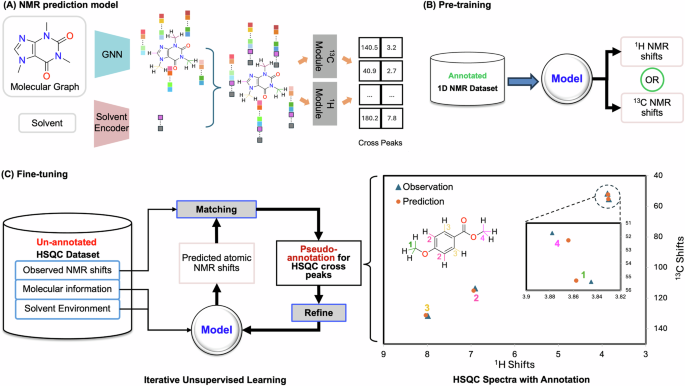- Select a language for the TTS:
- UK English Female
- UK English Male
- US English Female
- US English Male
- Australian Female
- Australian Male
- Language selected: (auto detect) - EN
Play all audios:
Internet-connected devices could transform our understanding of the causes of behavioural variation and its impact on health and disease, in particular for neuropsychiatric disorders. Access
through your institution Buy or subscribe This is a preview of subscription content, access via your institution RELEVANT ARTICLES Open Access articles citing this article. * ASSESSMENT AND
ASCERTAINMENT IN PSYCHIATRIC MOLECULAR GENETICS: CHALLENGES AND OPPORTUNITIES FOR CROSS-DISORDER RESEARCH * Na Cai * , Brad Verhulst * … Kenneth S. Kendler _Molecular Psychiatry_ Open
Access 27 December 2024 * DIGITAL PHENOTYPING, BEHAVIORAL SENSING, OR PERSONAL SENSING: NAMES AND TRANSPARENCY IN THE DIGITAL AGE * David C. Mohr * , Katie Shilton * & Matthew Hotopf
_npj Digital Medicine_ Open Access 25 March 2020 ACCESS OPTIONS Access through your institution Access Nature and 54 other Nature Portfolio journals Get Nature+, our best-value online-access
subscription $29.99 / 30 days cancel any time Learn more Subscribe to this journal Receive 12 print issues and online access $209.00 per year only $17.42 per issue Learn more Buy this
article * Purchase on SpringerLink * Instant access to full article PDF Buy now Prices may be subject to local taxes which are calculated during checkout ADDITIONAL ACCESS OPTIONS: * Log in
* Learn about institutional subscriptions * Read our FAQs * Contact customer support REFERENCES * Sullivan, P. F. et al. Psychiatric genomics: an update and an agenda. _Am. J. Psychiatry_
175, 15–27 (2018). Article Google Scholar * Khera, A. V. & Kathiresan, S. Genetics of coronary artery disease: discovery, biology and clinical translation. _Nat. Rev. Genet._ 18,
331–344 (2017). Article CAS Google Scholar * Mohr, D. C., Zhang, M. & Schueller, S. M. Personal sensing: understanding mental health using ubiquitous sensors and machine learning.
_Annu. Rev. Clin. Psychol._ 13, 23–47 (2017). Article Google Scholar * Goodwin, F. K. & Jamison, K. R. _Manic–Depressive Illness: Bipolar Disorders and Recurrent Depression_ 2nd edn
(Oxford Univ. Press, 2007). * Hong, W. et al. Automated measurement of mouse social behaviors using depth sensing, video tracking, and machine learning. _Proc. Natl Acad. Sci. USA_ 112,
E5351–E5360 (2015). Article CAS Google Scholar Download references ACKNOWLEDGEMENTS We thank C. Douglas for manuscript assistance and acknowledge support from the Depression Grand
Challenge and US National Institute of Mental Health grants U01 MH105578 and R01 MH113078 (N.B.F.) and R01 MH11610 (D.C.M.). AUTHOR INFORMATION AUTHORS AND AFFILIATIONS * Depression Grand
Challenge, Center for Neurobehavioral Genetics, Jane and Terry Semel Institute for Neuroscience and Human Behavior, UCLA, Los Angeles, CA, USA Nelson B. Freimer * Center for Behavioral
Intervention Technologies, Northwestern University, Chicago, IL, USA David C. Mohr Authors * Nelson B. Freimer View author publications You can also search for this author inPubMed Google
Scholar * David C. Mohr View author publications You can also search for this author inPubMed Google Scholar CONTRIBUTIONS The authors contributed equally to all aspects of this manuscript.
CORRESPONDING AUTHOR Correspondence to Nelson B. Freimer. ETHICS DECLARATIONS COMPETING INTERESTS The authors declare no competing interests. SUPPLEMENTARY INFORMATION SUPPLEMENTARY
INFORMATION RIGHTS AND PERMISSIONS Reprints and permissions ABOUT THIS ARTICLE CITE THIS ARTICLE Freimer, N.B., Mohr, D.C. Integrating behavioural health tracking in human genetics research.
_Nat Rev Genet_ 20, 129–130 (2019). https://doi.org/10.1038/s41576-018-0078-y Download citation * Published: 06 December 2018 * Issue Date: March 2019 * DOI:
https://doi.org/10.1038/s41576-018-0078-y SHARE THIS ARTICLE Anyone you share the following link with will be able to read this content: Get shareable link Sorry, a shareable link is not
currently available for this article. Copy to clipboard Provided by the Springer Nature SharedIt content-sharing initiative









